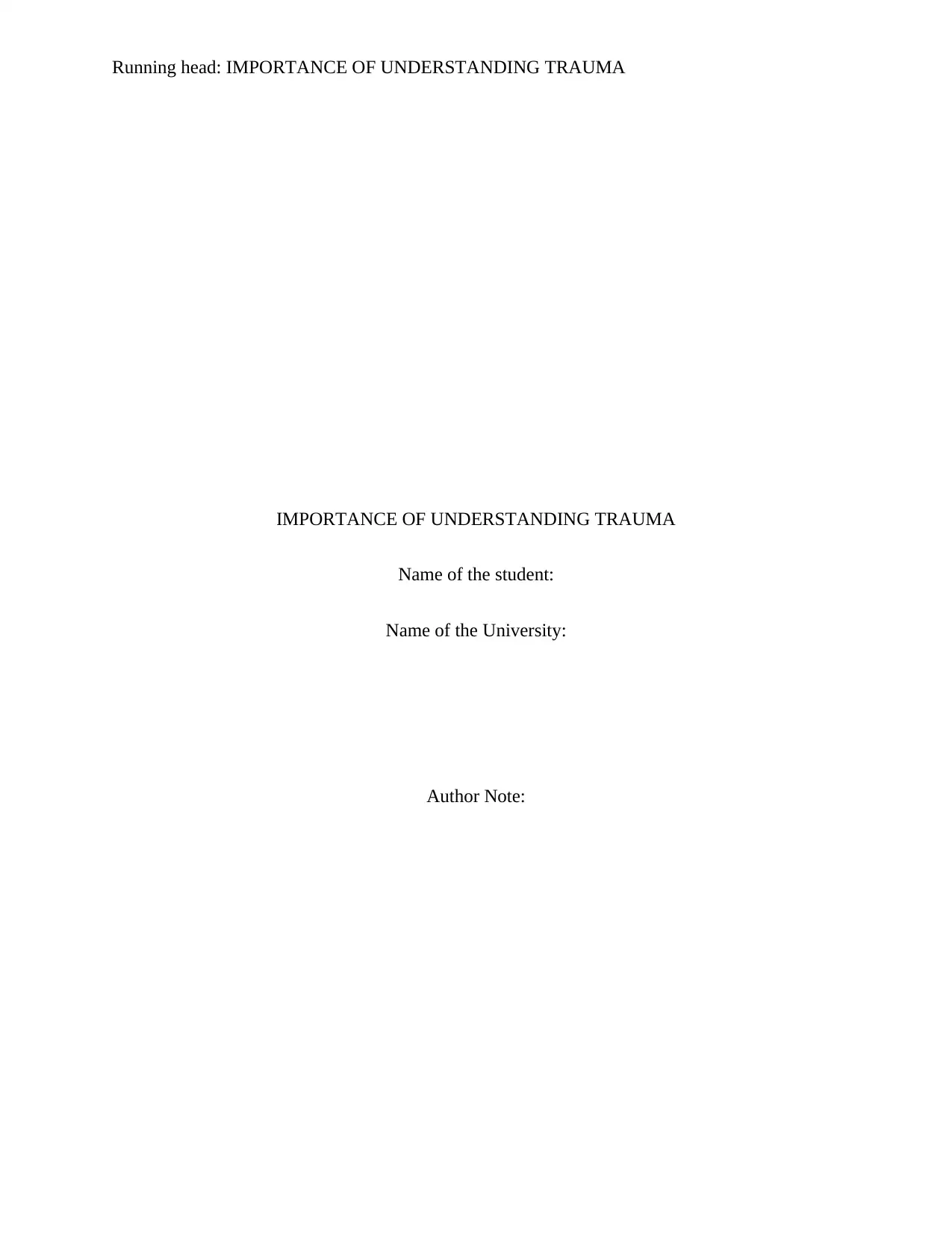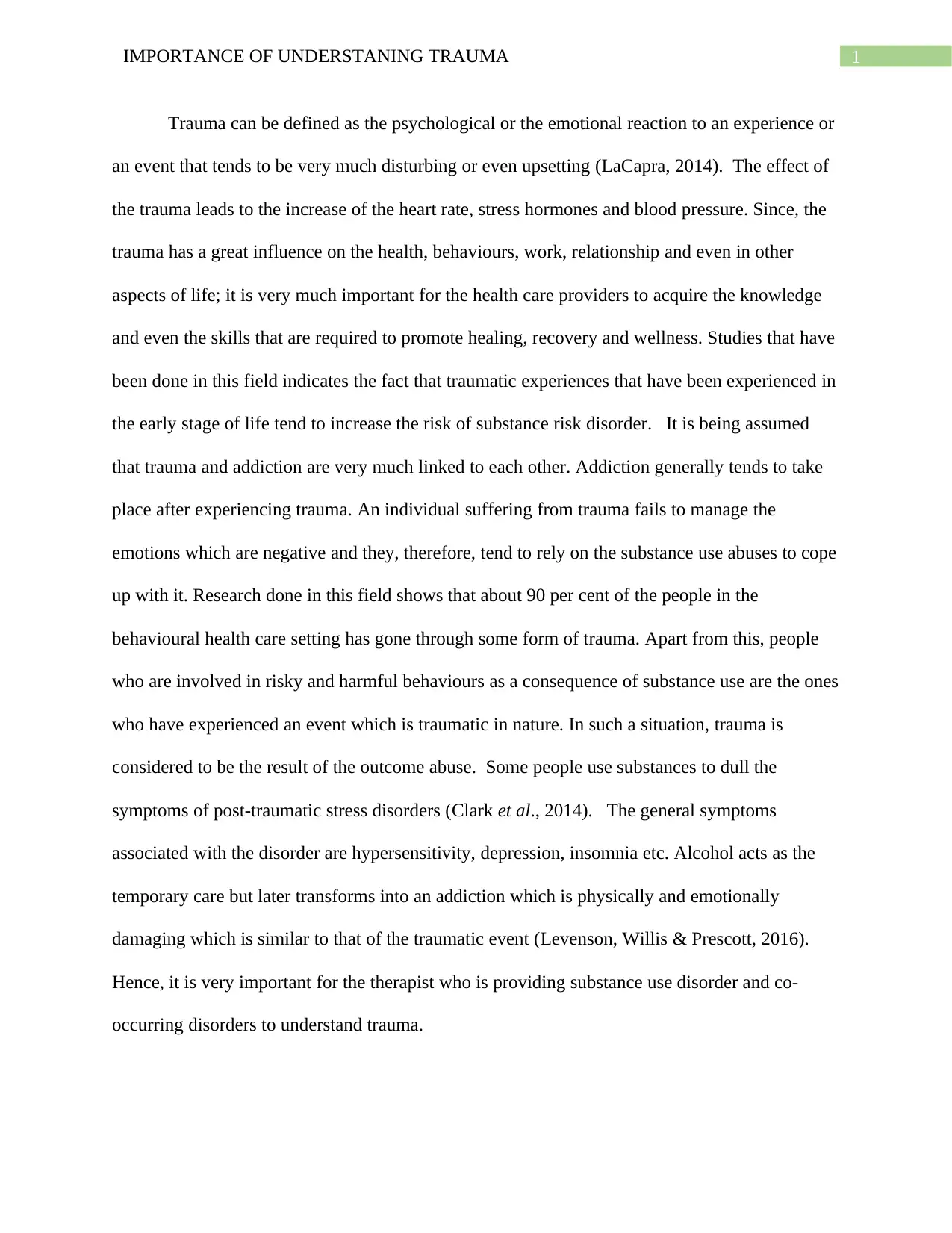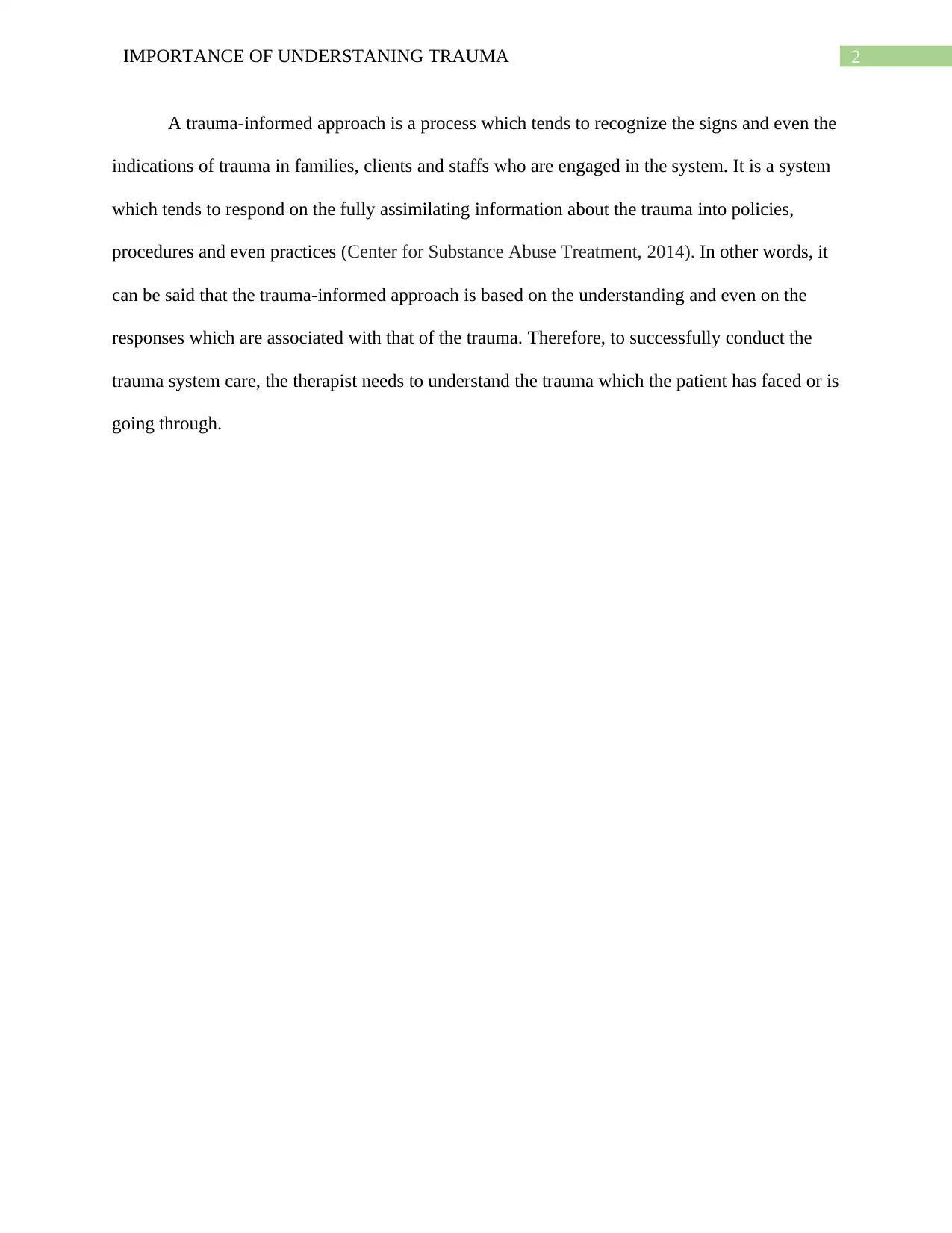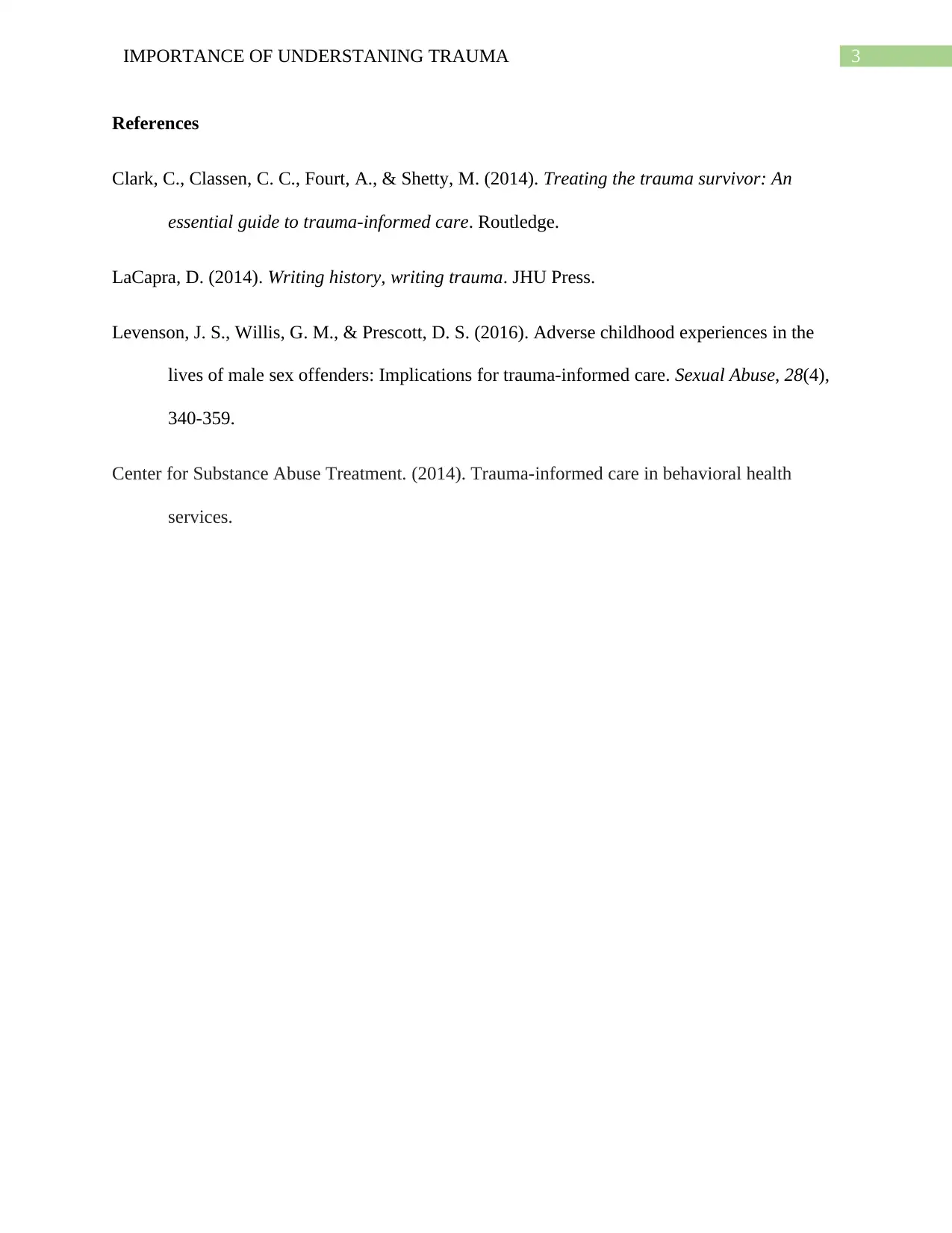Psychology: Understanding Trauma and Its Impact on Addiction
VerifiedAdded on 2022/08/15
|4
|641
|19
Discussion Board Post
AI Summary
This discussion board post explores the critical connection between trauma and addiction, highlighting the adverse effects of traumatic experiences on mental health and the increased risk of substance use disorders. The author emphasizes the importance of understanding trauma, particularly for healthcare providers, and discusses the link between early-life trauma and addiction, the use of substances to cope with negative emotions, and the role of trauma-informed care in behavioral health services. The post references key studies, including Kaiser Permanente's Adverse Childhood Experiences study, to illustrate the correlation between childhood trauma and addiction. It also emphasizes the symptoms of trauma and PTSD, such as hypersensitivity and depression, and how alcohol can temporarily alleviate these symptoms, leading to addiction. The author concludes by advocating for a trauma-informed approach in the treatment of substance use disorders and co-occurring disorders, recognizing the signs of trauma in clients, families, and staff and integrating this information into policies and practices.
1 out of 4









![[object Object]](/_next/static/media/star-bottom.7253800d.svg)